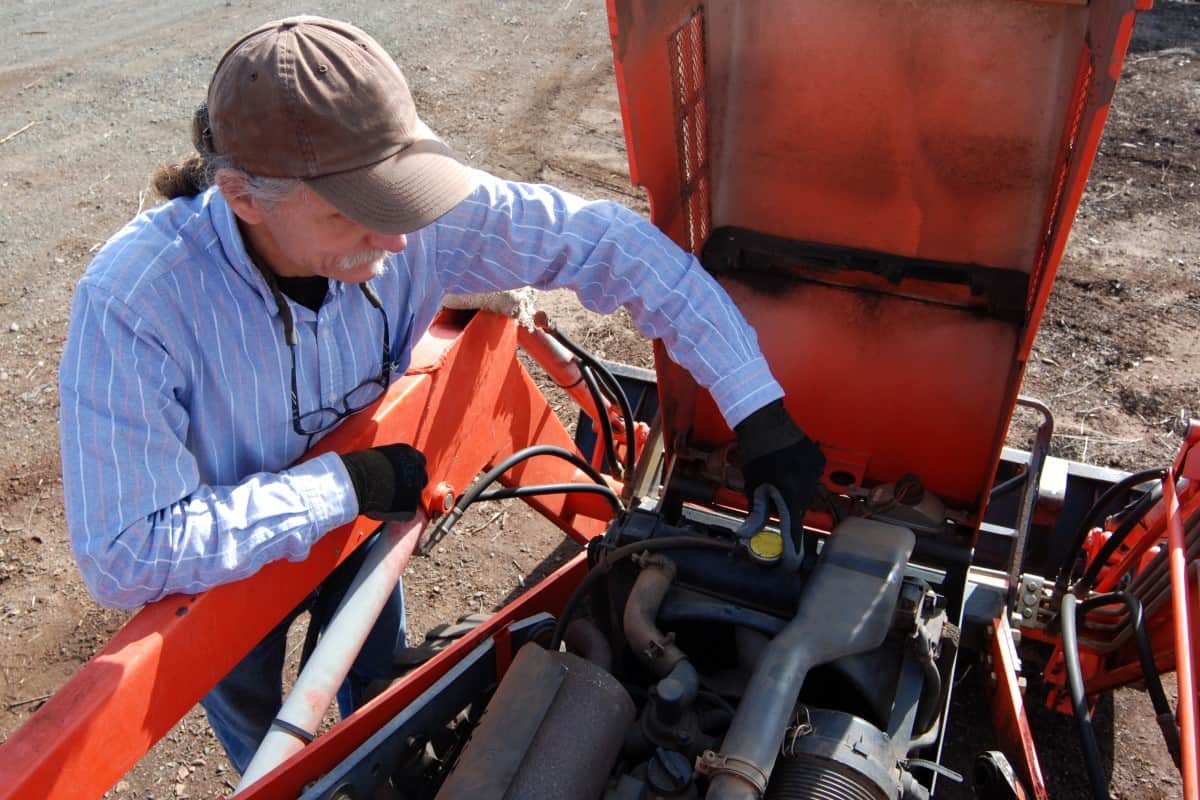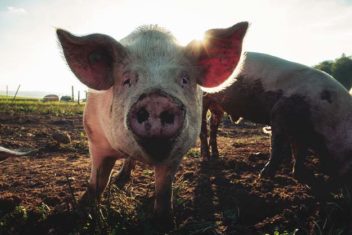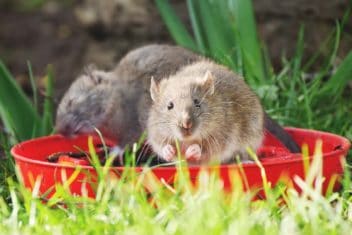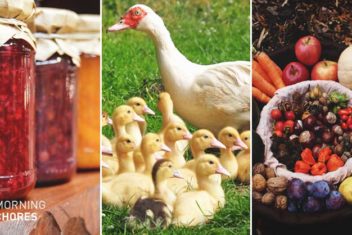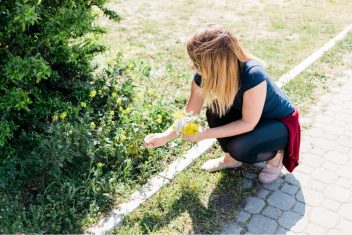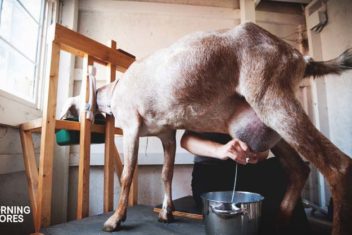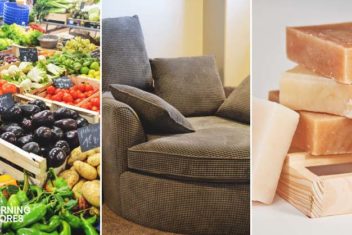Running a homestead is no small task. From daily chores to monthly or yearly ones, there’s always something to be done. Over the years, I’ve come to understand the importance of homestead maintenance.
With so much work to be done, it’s important you take good care of your tools, put things away when they aren’t in use, stay organized, and plan ahead. After all, buying equipment and tools is a huge investment, and by looking after them they will last you longer.
Take Care of Your Tools for Lifelong Use
We have so many tools on our homestead, from shovels to socket sets. The list is endless, so it’s vital to take good care of them.
1. Keep Them Sharp
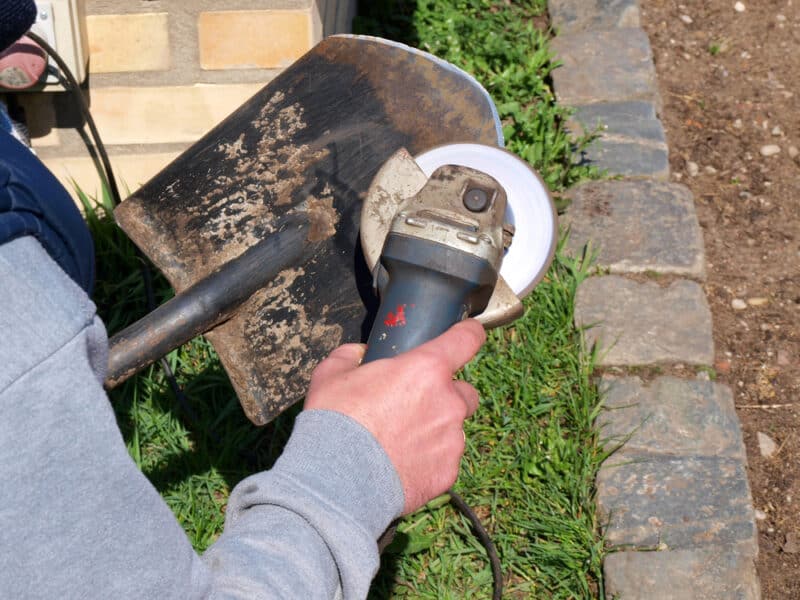
Saws, knives, shovels, pruners, scissors… these things get dull over time. Using dull tools can be dangerous, and creates extra work and hardship.
Sharpening a shovel is a pretty easy DIY job. However, sharpening scissors might not be something you are equipped for. Many hardware stores will sharpen tools for you, or at least direct you to somebody who can.
2. Keep Them Rust-Free
I’ve made the mistake countless times. A tool gets forgotten in the grass, and when I find it again, it’s rusted. A rusty tool is usually an ineffective tool.
To remove rust from a tool, you can usually use steel wool or a wire brush to wipe away most of the rust. Sometimes a bit of sandpaper will do the job, and other times a rust remover may be required.
3. Keep Them Oiled or Greased
Know your tools and equipment and what kind of care they need. Oil and grease will prolong the life of your tools or equipment if used properly.
Wood tools typically need an oil coating every now and then, or a coating of wood butter. This will keep wood from drying out and splintering. Some wooden tools, however, have a clear coat applied and do not need this care.
A drop of oil on a pair of stiff pliers will loosen them right up. And grease in the tractor keeps everything moving smoothly.
Grease on the screw of our apple press keeps the screw moving up and down safely. However, we have to be sure we use a food-safe grease on the screw in the event anything would accidentally touch the food we deal with.
Take Care of Your Valuable Equipment
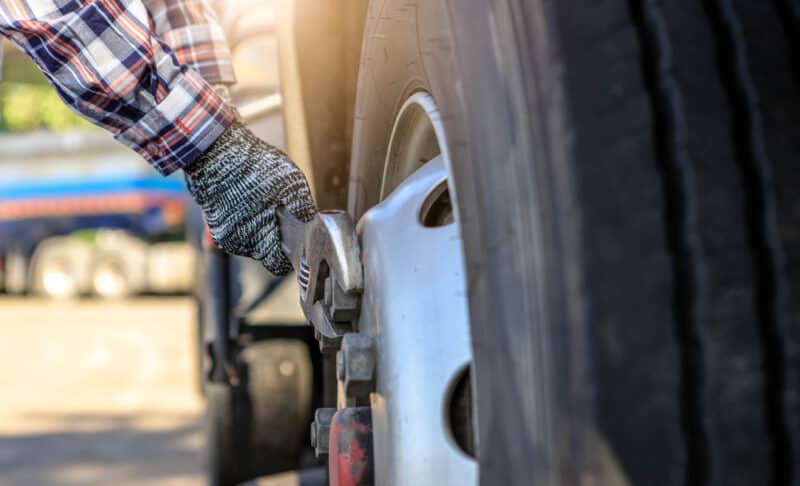
Not every homestead has the same equipment, but whatever you do on your homestead, it’s just as important to take care of your equipment as it is your tools.
1. Maintenance On Vehicles
Check hoses for leaks, wires for loose connections, and tires for damage. Be sure to do oil changes and grease parts as needed. Don’t forget to check other fluids the vehicles may use.
Vehicles that will be left unused throughout the winter sometimes require that the gas tank be siphoned off before the temperature dip below freezing.
Check the tires on your vehicles before driving them. Driving on a flat tire can damage the tire, the rim, and the vehicle. The cold weather of Wisconsin requires us to keep an eye on tire pressure with the cooling and warming.
Flat tires can come up from gradual leaking of air, a puncture, a failed seal, or any number of other issues.
Make sure battery-draining parts are turned off when the vehicle is not in use, better yet, remove the keys. Headlights left on overnight on the ATV will leave you frustrated when you try starting it up the next day.
Don’t forget the farm implements. At the moment, we have no choice but to store some of our implements outside. However, ideally, they should be stored out of the elements when not in use.
2. Maintenance Of Other Equipment
We make maple syrup and at the end of the season, everything gets washed down properly and the stove shoveled out. Sap vats get turned upside down to keep dust and spiders from making homes in them, which would require additional cleaning up before we can use them again.
We’ve had bees in the past, but since we didn’t buy more this year, our hives went into storage to help prolong their lives.
Our food processing equipment, be it for bees, syrup making, or butchering, gets stored in plastic totes with lids that clip into place when not in use. Everything should be clean and dry before storing it.
We use food-grade 5-gallon pails for food processing. Every time they get used, they are washed, dried, stacked, and a cover put on the top bucket of the stack. Once covered, flip the stack upside down to be sure nothing gets into the buckets.
Remember to Clean Up!
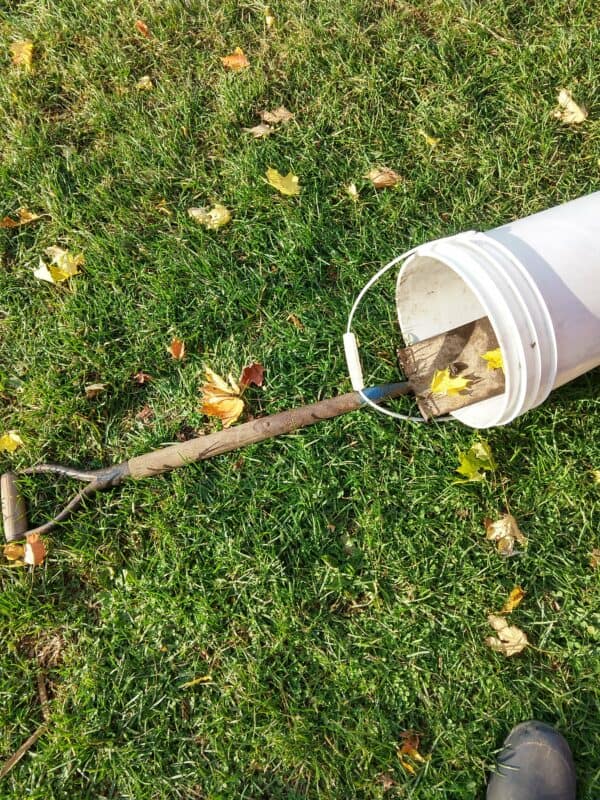
One of the most important things you can do on your homestead is to be sure to clean up after yourself.
Keeping a clean homestead is a challenge with a house full of young children. I get interrupted before I get to put things away on a regular basis, but I never regret taking a few extra minutes to put things away.
In the event of an absolute emergency, leave things where they lay, but come back as soon as possible to finish cleaning up.
Tools are easily lost in grass, weeds, and mud, so even if you think you’ll be right back after a break, put your tools away. It’s a headache to hunt for misplaced tools, and it can be extremely dangerous to run over them with a lawnmower or a tractor or even just stepping on them.
It’s a safety hazard and a headache and can cost you a lot of money to be constantly replacing lost or weather-damaged tools. Plus, extra maintenance creates more work for you in the long-run.
Don’t forget cleaning up after the garden season or things pertaining to your animals.
Easy Ways to Get Organized
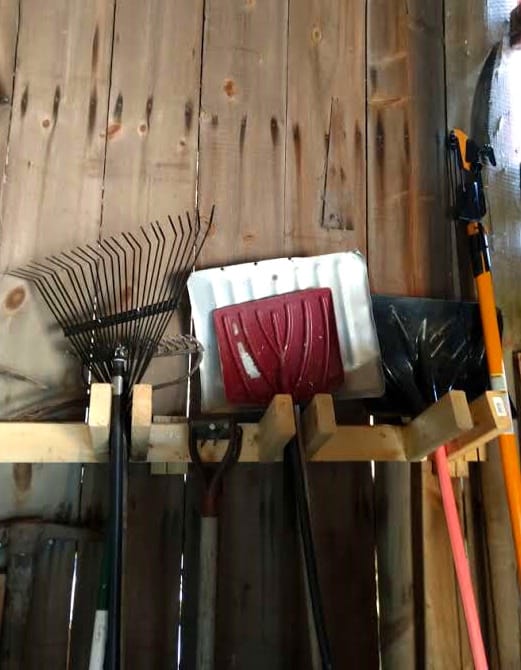
As the old adage goes: Everything has a place and everything in its place.
The three important points to remember when getting organized are:
- have a place for everything to go,
- make sure everyone knows where everything goes, and
- put things away when they are not being used.
With a large family, it is incredibly important that everyone who can use the items on the homestead knows where they go.
Clear bins with lids that snap into place, and labeled with a marker will help you to keep your supplies organized for bigger tasks that you don’t do very often. We have bins for bee equipment, syrup making, and butchering.
Keep tools well sorted. We have toolboxes for specific jobs or places, such as one for electrical work, one for plumbing, and so on, and things like socket sets are stored on a rail to make finding the right size easier.
Keep a list of vehicles or special equipment (like snowblowers) you own that need maintenance. The list should say what kind of oil and filter is needed, if it uses grease, the battery type/number, or any other basic parts or fluids that it will use that you are likely to replace.
When something goes wrong or needs maintenance, you have an easy list to look at instead of flipping through manuals.
Don’t forget things like records, receipts, and plans. You should have a place for all of these things to be stored so they are easy to access. Sort them out by topic, such as “chickens,” “garden,” and “tractor.”
Seeds store well in an airtight container in a refrigerator or freezer for next year. Sort them by type, and to keep track of what needs to be ordered or saved for the coming year.
Plan Ahead For Different Scenarios
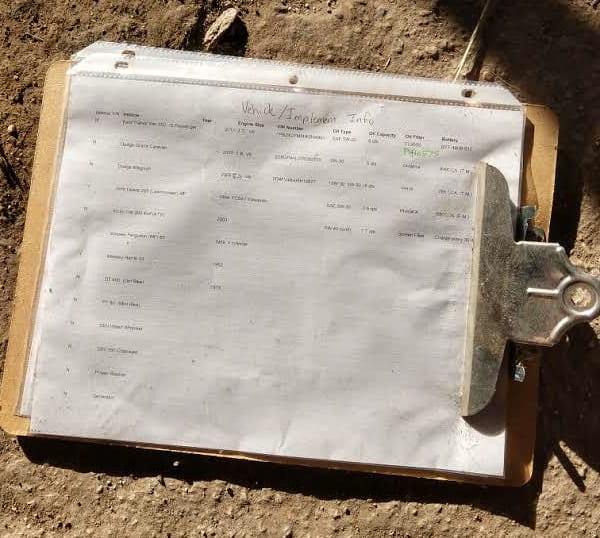
An important part of maintaining your homestead is to plan ahead. This can take time and experience to get good at, but even a rough plan is better than no plan. Personally, I have a list of the months of the year, how busy that month is, and what types of tasks I do during that time.
Make plans for any animals that you will purchase during the coming year. Do you have shelter? A plan for food? What supplies will you need, and where will you store that?
Stock up on supplies you will need throughout the year as you are able. I bought canning supplies when we got our tax return, and it saved me a lot of time running back and forth to the store during the canning season.
Planning ahead can include knowing what you will be eating during the very busy months. This might include making some meals ahead of time so that you don’t have to resort to eating out.
Think about the climate that you live in, and have a plan for emergencies such as tornadoes, hurricanes, wildfires, and blizzards. Do you have a plan for your animals or your family for basic needs?
Don’t worry about getting everything done all at once. Just do what you can as you can. I’d recommend starting with a plan for getting organized, and just working on it as you are able.
